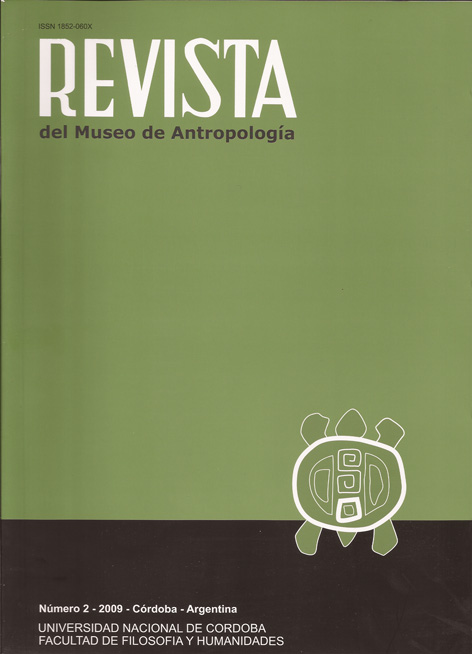Translocated roses or the myth of Eldorado: Journeys through time, space, image and silence
DOI:
https://doi.org/10.31048/1852.4826.v2.n1.5408Keywords:
Eldorado, Misiones, local-global, Nazism, Family, immigration, investigación social reflexivaAbstract
The looking glass is directed towards Eldorado, a virgin subtropical land in Northeastern Argentina, around 1920. I will be following some lines of its history during the following three decades, a history that can be read in terms of bringing “civilization”, modernity and progress to an untamed savage land. The basic route was that of European immigration, in part escaping from poverty, conflict and destruction. The “locality” and the “local” –in this case as in others—are not what is left over or kept out of the center. Rather, it is part of an interrelated world. The task I propose stems from an attempt to conceptualize the “local” not in contrast to the “global” or the “macro” but rather as a shifted center from which the world can be looked at, a base from which webs of connections with other places, peoples and institutions are made and broken, shaped and reshaped. From this “descentered” center, the history of “Europe” becomes not a history of place but one of flows and webs --of people or of political and institutional links, of economic interests, of personal and family ties. Personal letters and photographs sent and received, auto- and family biographies and the photo album are the means to explore such flows. There are also the more conventional public documents and printed newspapers. It is also a story of many silences to be uncovered.The case of Eldorado will be used to reflect upon and pose some questions about more general issues in social research: the conceptualization of local-global and center-periphery relationships; the private-public divide; the split we construct between rationality and objectivity on the one hand, and passions and emotions on the other; the “embodied” link between academic research, intellectual commitments and the public sphere; perhaps something about chance and choice in asking research questions.
Downloads
References
Arenhardt de Romagosa, E. H. 2003. “Don Adolfo Schwelm y su proyecto colonizador”. III Jornadas sobre Poblamiento, colonización e inmigración en Misiones. Posadas: Ediciones Montoya.
Arenhardt de Romagosa, E. H. 2005. “El sistema ‘Wandhufendorf’ organiza el paisaje rural de Colonia Eldorado (1924-1948)”. IV Jornadas sobre Poblamiento, colonización e inmigración en Misiones. Posadas: Ediciones Montoya.
Berger, J. 1980. About looking. Nueva York: Pantheon Books.
Cooper, F. J. 1986. “Where you go –I go.” Inglaterra: edición del autor.
Eidt, R. C. 1971. Pioneer settlement in Northeast Argentina. Madison: University of Wisconsin Press.
Haraway, D. 1988. “Situated Knowledges: The Science Question in Feminism and the Privilege of Partial Perspectives,” in Feminist Studies, pp. 575–599.
Hirsch, M. 1997. Family frames : photography, narrative and postmemory. Cambridge : Harvard University Press.
Micolis, D. 1973. Une Communauté Allemande en Argentine: Eldorado. Quebec : Centre International de Recherches sur le Bilinguisme.
Mills, C. W. 1959. The Sociological Imagination. New York: Oxford University Press.
Rizzo, A. 1987. Historia de Eldorado. Eldorado: Municipalidad de Eldorado Misiones.
Downloads
Published
Issue
Section
License
Those authors who have publications with this Journalaccept the following terms:
a. Authors will retain their copyrights and guarantee the journal the right of first publication of their work, which will be simultaneously subject to the Creative Commons Attribution License (Licencia de reconocimiento de Creative Commons) that allows third parties to share the work as long as its author and his first publication in this journal.
b. Authors may adopt other non-exclusive licensing agreements for the distribution of the version of the published work (eg, deposit it in an institutional electronic file or publish it in a monographic volume) provided that the initial publication in this journal is indicated.
c. Authors are allowed and recommended to disseminate their work on the Internet (eg in institutional telematic archives or on their website) before and during the submission process, which can lead to interesting exchanges and increase citations of the published work. (See The Effect of Open Access - El efecto del acceso abierto)












